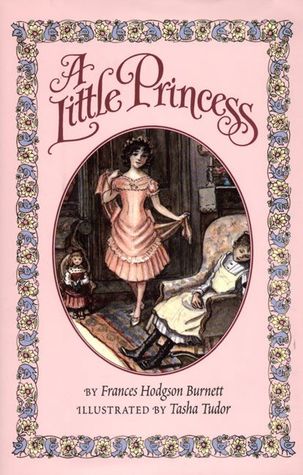A little princess by Frances Hodgson Burnett is a classical children’s novel. It features a sweet story of a young girl Sara Crewe. It was first published in January 1905. The novel is an extended edition of the original story Sara Crewe; or What Happened At Miss Minchin’s, published in 1888.
The story starts when Sara is seven years old and travels to London for Miss Minchin’s Boarding school with her Father, Captain Crewe. Her Father works in the British army in India.
The father-daughter relationship is described as very sweet and loving. Her Father wants his daughter to have the best things, so he fills her closet with fabulous velvet clothes. He even gives extra payment to Miss Minchin to treat her as unique and lavish.
Her Father gives Sara a doll as a parting gift which she names Emily. The doll is her precious and prized possession. She keeps it with her anywhere she goes and talks to her, especially telling her stories she imagines.
Life of Sara is pretty lavish and privileged compared to other girls in boarding schools. Sara is shown to be a sensible and curious girl. She is intelligent, not naive, talkative, yet respectful and rich but kind. It is interesting how she chooses to behave kindly with other girls despite the bullying and the special treatment. The people in the boarding school give her the nickname’ princess’. Due to her sweet and charitable behavior towards others, some in jealousy and some in praise.
Sara’s main character is a little too good to be accurate but not unbelievable. She is a charming girl who speaks fluent French, has fashionable clothes and tells stories. Something that interests me and seems sweet is not just her ability to daydream and imagine stories but making characters and stepping in their shoes, and being able to pretend.
She pretends that she is a princess even when she is rich and even when she has nothing. Her wealth and attitude cause a constant struggle between her and Miss Minchin, as the former is envied and disliked by the latter.
“It’s true,” she said. “Sometimes, I do pretend I am a princess. I pretend I am a princess to try and behave like one.”
― Frances Hodgson Burnett, A Little Princess
The good times end when Sara turns eleven, and a letter informs Miss Minchin of the death of Sara’s Father. Miss Minchin had arranged an extravagant birthday party for Sara out of her pocket, and with the news of death and having lost all of her fortunes, she is furious at her waste of money.
She wants to kick Sara out but later sends her to live with Becky. A fourteen-year-old maid lives in an attic and works for Miss Minchin all day. The sudden change of circumstances has Miss Minchin feeling triumph. As she hides her jealousy and envy behind her pretense of keeping a roof over her head in her harsh treatment of Sara.
Soon some new neighbors move into the house beside the boarding school. Ram Das, an Indian servant to his master, who he refers to as Saab, gets to know about Sara through the attic window. He occasionally chats with Sara and takes a liking to her.
He talks about Sara’s and Becky’s growing friendship becoming another thorn in Miss Minchin’s heart, and she punishes Sara and Becky by keeping them hungry. The magic Sara believes in happens as she wakes up to the attic filled with warmth and food. Ram das supplies her the food through the attic window while she’s asleep.
When the neighbor’s monkey comes through the attic, Sara takes him to Ram Das herself, where she meets him and his Sahab.
The book’s central theme is remaining kind to thick and thin, not letting go of imagination, and being optimistic.
“If nature has made you for a giver, your hands are born open, and so is your heart. Though there may be times when your hands are empty, your heart is always full, and you can give things out of that—warm things, kind things, sweet things—help and comfort and laughter—and sometimes gay, kind laughter is the best help of all.”
― Frances Hodgson Burnett, A Little Princess


